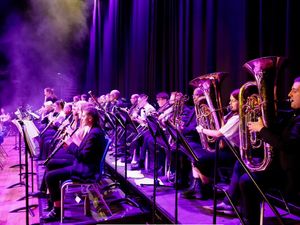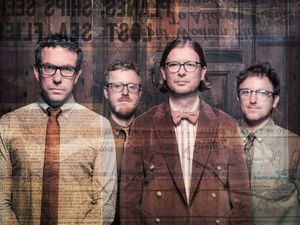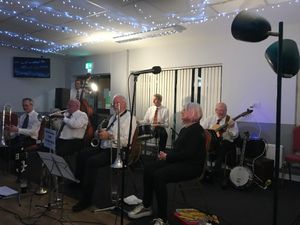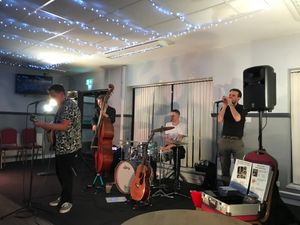'You're never alone with a big band': Jools Holland talks ahead of Rhythm and Blues Orchestra shows in Birmingham
Musical virtuoso Jools Holland and his distinguished Rhythm and Blues Orchestra return to Symphony Hall Birmingham this November.
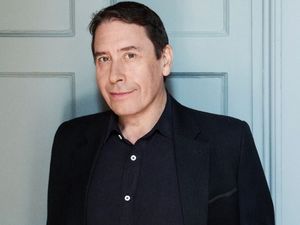
Additional special guests will include Pauline Black and Arthur ‘Gaps’ Hendrickson from legendary ska band The Selecter. Support at Symphony Hall will be Adam Double.
Jools has long-running musical history with Birmingham after being behind the opening of The Jam House jazz venue on St Paul's Square with designer Neil Tibbatt in 1999.
A spokesperson said: "With a tremendous collection of Jools tunes and other boogie-woogie classics to choose from, Jools’ UK tour is set to be an unforgettable night out that will have audiences on their feet."
Ahead of the show, we speak to Jools about tour life, special guest stars and his musical upbringing...
Being on the road with a band you've known for a long time makes it quite a social thing, doesn't it?
One of the things for us is, there's a lot of us, so you're never alone. There used to be that advert for a cigarette called Strand, and the advert was 'You're never alone with a Strand.' And it was such a disaster because everybody thought 'Well, I don't want to be alone.' So they went out of business. But it's a bit like 'You're never alone with a big band because wherever you are. If you arrive in a town, I see Bammi, because like me he studies the horses, going into a bookmaker's on the high street. There'll be somebody else coming out, you'll see. It's like we're alien spores that have been dropped in whatever town it is, and I recognise us as I'm coming into the town. In the hotel afterwards, there'll be a couple of people having a drink. We often, at the show, because it's easy, we all have a big curry for all of us, that's quite jolly. One of the things that is great is that everybody's got a great sense of humour in the band and they're funny as well as being good players. So that's a good part of it. Also, in the daytime, I'm a keen tourist, I like looking at stuff, so I look at gardens, I look at old buildings or whatever. There's always something to look at, always something new to discover, so I think the world of touring is not bad. If you have to do endless ten hours of flying a day, then it could wear you out a bit, but that's just a small price to pay.
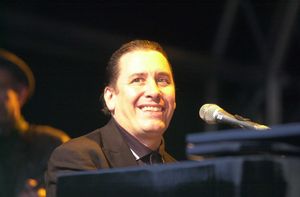
For people who come to see you often, there is always a new element in your special guests.
This year, we're having somebody who's worked with us before, but they bring out this great element of us, which is Selecter. Specifically, it's Pauline Black, the singer, and 'Gaps' Hendrickson, who works with Pauline, and they're perfect for us because they represent the British take on ska music, the 2 Tone thing. Although I wasn't part of the 2 Tone thing, I was part of British ska music, that's part of my heritage and part of the thing my orchestra have been doing for the past 25 years, so we've always been playing that music. So it's perfect for us and the effect they have on the audience, it's like everybody jumps up straight away, as soon as they hear them doing 'Train To Skaville,' it's just like such great music, and they do it so fantastically, and with a particular British take on it, which is great. It's really electric to hear them doing it, and they are the originators of that British take on ska music, like Eric Clapton and the Rolling Stones were the originators of British blues, in one sense of it, they are the originators of British 2 Tone ska. So it's great having them there, and they like being with the orchestra because being with a whole big band, it magnifies it and makes it even bigger, and has just a fantastic jump up effect.
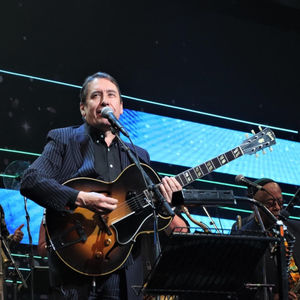
How do you go about adapting the guests' big hits for a big band?
I wouldn't want to force things into a big band style for things that weren't going to work, so sometimes you have to play things in a different way. Most things you can take back to the piano, because I suppose 70 per cent of songs — I'm making up figures, there, everybody does it these days — anyway, a lot of songs were written on the piano, or the keyboard. Or just on a guitar, one instrument, so they're not written with a big arrangement. So if you strip it back to that and then build it up again, you can normally make something work. If there's something that sounds like it's not naturally going to go with a big band, but anyway when you bring it down to just the piano, it tends to work, and the big band can creep in.
In your case, your nan's piano was crucial to your musical upbringing, wasn't it?
Yes, my nan's piano was really an essential thing because it was in her front room, as people had in the 1930s. It was a gift to her by her mother Britannia in 1937, and I would hear them at Christmas, when I was very small, all singing songs. Everybody had their own song that they'd sing at the piano, and it was also a pianola, so you would pedal the pedals and you would hear, and a piano roll would go round, Fats Waller playing 'Red Sails In The Sunset' would come out of it, which was great, so I got to learn those songs early on. But also, it was great because my uncle, who was a young teenager when I was small, would play boogie-woogie piano on it, and from that, that really got me going and fired up and made me learn by ear what he was doing, and learn the blues from day one. And I did discover since, that what he showed me, the left hand that he showed me, was the same left hand, because I met and talked to people about this that Ray Charles was shown by an old man in his village, that Ringo Starr, strangely, learned, that I think Mark Knopfler knows it as well. All these people, the first bit of piano they learned, and Dr. John, very strange, they were all drawn to this one little riff. So when people say 'Show me something on the piano,' I show them that. It hasn't worked so far producing the next Ray Charles, but you never know. But it was all the same little boogie-woogie left hand, the same one, the same little figure, a little sort of 'baa-baa...'.

Did you have records in the house at home?
We couldn't afford a piano, but we had a record player, and a radio, and my parents liked classical music and jazz music, and so I would hear a lot of that, and I think it opened my mind to a lot of that, so I still like it very much. I say jazz music, like Bessie Smith or Jelly Roll Morton, things like that. Then at my grandmother's house, there was a record player as well, so I would get records and then play them to death. The first record player I had was a 78 record player, with a great big wind-up needle, which is the worst thing even to play 78s on, the one with the big metal needle. I had a Beach Boys record and I worked out that if I slowed it right down, the Beach Boys sounded vaguely alright, for about five times, then the big metal needle took everything off the vinyl face off the record, so that was the end of that. But eventually, my dad got me an Alba record player, and we could have a good listen to whatever records were out at the time. I think I had a Glenn Miller one, which got worn out, but the first proper LP I had was 'For Once In My Life' by Stevie Wonder, I liked that, and I think I had 'Lady Madonna,' the single, by The Beatles, because I tried to learn the piano part on it.
What's your favourite record you've ever played on?
I've been lucky, I've played on a few different records. I played on one with B.B. King and Van Morrison, it was a record for B.B. King with people doing tracks with him, and Van was singing a track and I was playing piano on it. They played this thing and they counted in, and the first intro is two leading notes on the piano. The band starts singing and B.B. starts playing and neither of them have played it before, and it just was 'This is just great, wow, it's really magical.' I got the record back and it's just lovely, yeah.
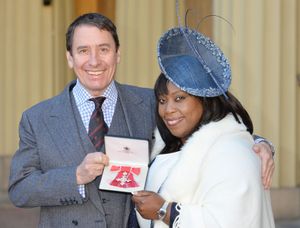
You're not one for looking back, but do you ever stop to think about the life you've led in music?
No, I think sometimes it's time to look in the rear view mirror and take stock, because there are some fantastic moments. I've been very lucky, both either on record where we recorded with George Harrison, or written with Dr John, or Dionne Warwick covered a song that San Brown and I wrote. I can't believe it sometimes, all this stuff that's happened. Then also sometimes when we play on 'Later' or on the 'Hootenanny' and people play with us, you get some amazing thing [that] happens sometimes. The atmosphere is just great when it goes. I think now, it's not like it used to be where a record is that. Now, the record is if you get a great live performance and somebody's filmed it, maybe millions of people will watch that on YouTube. Then sometimes it's just being in the dressing room doing a warm-up with somebody at the piano. I remember being in the dressing room with Amy Winehouse and her just singing something at the piano. And you're thinking 'Wow, that's amazing.' So it doesn't really matter whether it's live on the television, on a record or in a dressing room, or at home or at a gig, you're plugging into the same thing and it's an amazing thing, I'm so fortunate to have plugged into it and been very moved by it. The more you listen to stuff and the more you play, the more you can play and listen to stuff, yet the more mysterious it all becomes, and that's the great thing about it, you can never figure it out.
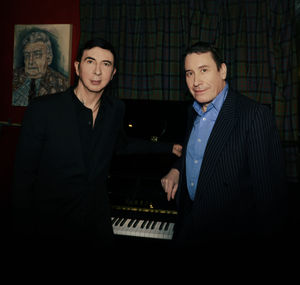
Jools Holland's Rhythm and Blues Orchestra comes to Birmingham's Symphony Hall on November 29 and 30.
For more information and to buy tickets, click here.


